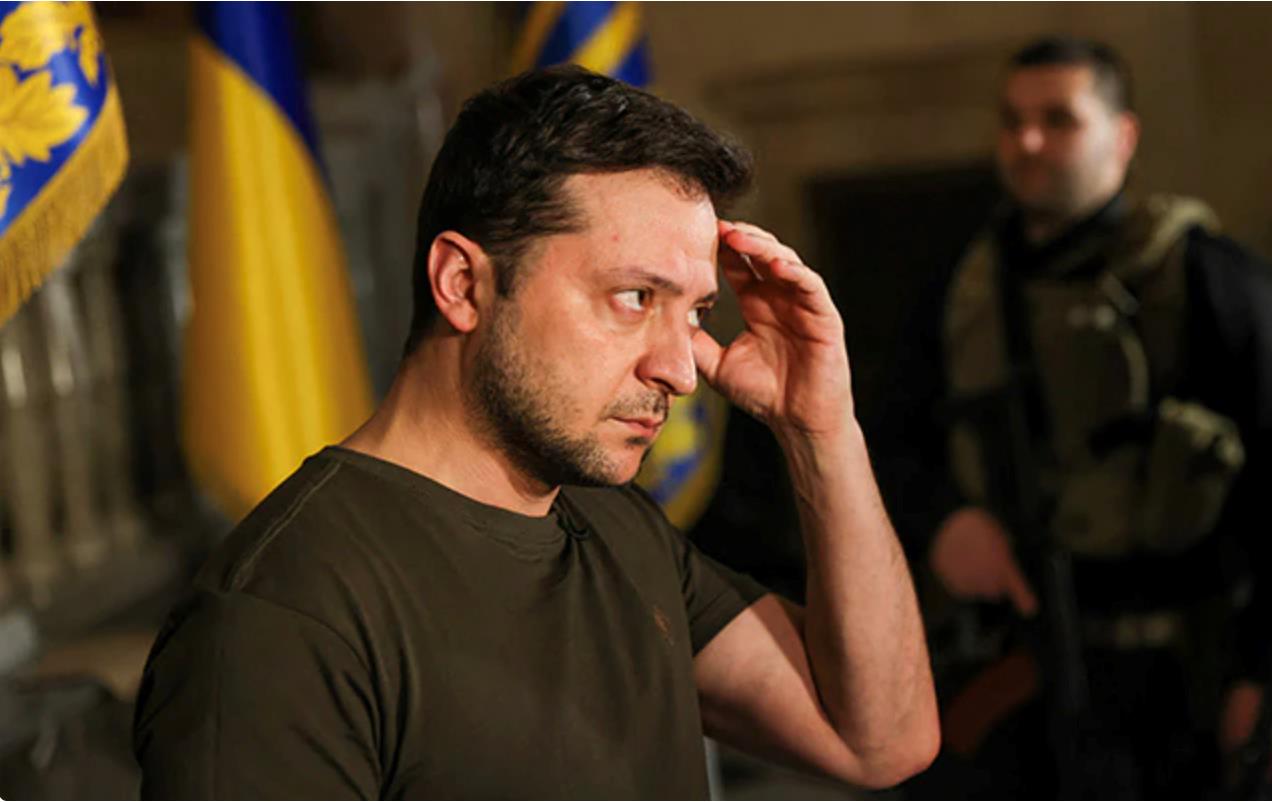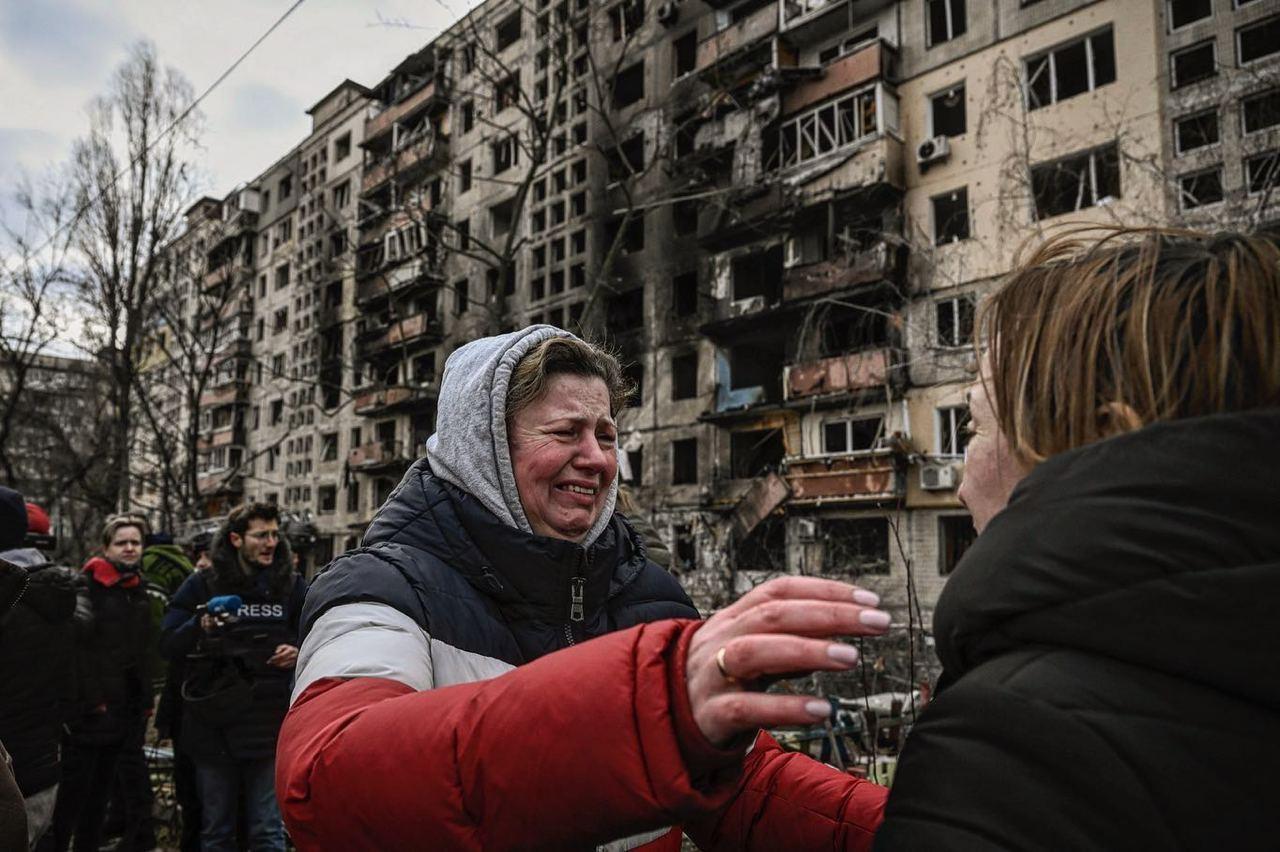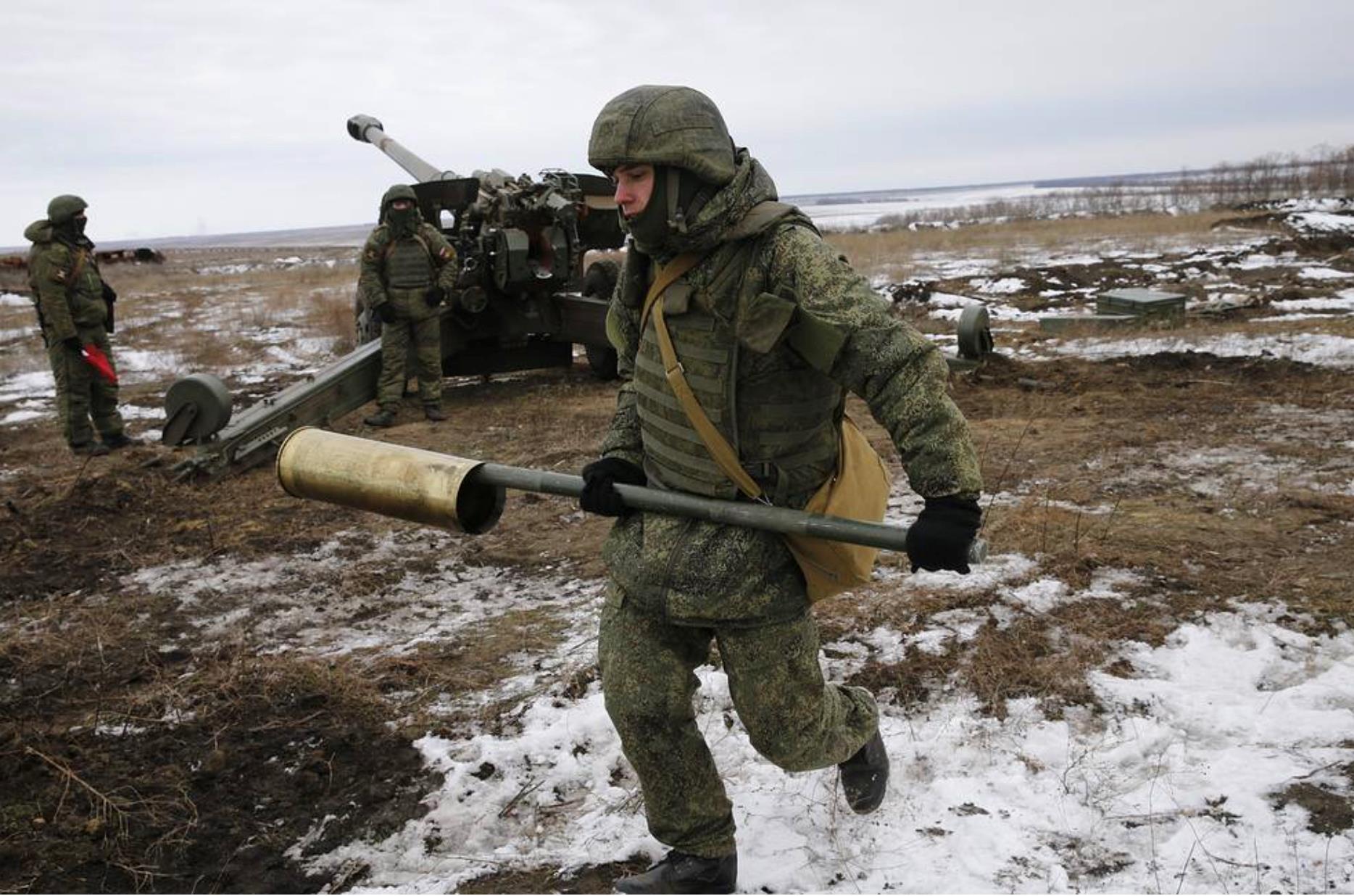(MENAFN- Asia Times)
A month into Russia's invasion of Ukraine, we have found out that – far from being restructured and modernized – Russia's military remains cumbersome and archaic and is reportedly struggling with low morale.
Ukraine's defense, meanwhile, has been astonishing. The Ukrainian president, Volodymyr Zelensky, and Ukraine's people have responded so robustly that, in the words of US president Joe Biden, Putin's “back is against the wall.”
Zelensky is now calling for direct negotiations with the Russian president, Vladimir Putin. But the backdrop to the negotiations will be key.
At home, Russia is increasingly paralyzed by sanctions designed to deepen its financial isolation and cause economic chaos. From its central bank to oil, gas, agricultural and precious metal exports, sanctions have – for the present – dislodged Russian economic entities from the global financial system.
And still the war rages. Russian troops are now opting for attrition, using heavy artillery rather than precision munitions to pummel key towns, guerrilla tactics to subdue municipal areas and border blockades at key naval ports to starve remaining pockets of resistance into submission.
A fortnight ago, both sides entered negotiations with clear red lines. A 15-point“neutrality plan” has since emerged between Ukraine and Russia, with input from Poland, the Czech Republic and Slovenia. But at present, the two sides seem further apart than ever.
Game theory can suggest likely next steps. Both sides are analyzing their preferred passive or aggressive options, and how this translates into a strategic win, loss or neutral outcome.

Ukrainian President Volodymyr Zelensky has become a global symbol of his country's brave struggle, but his Russian enemy continues to dictate conditions on the battlefield. Photo: NDTV / Screengrab
Strategic choices
Game theory is the formal study of strategic choices between two sides. It's useful to decision-makers because it can illustrate the range of options open to combatants within a given crisis, and also map the likely“wins and losses” strategically decided upon by the parties involved.
The challenge is applying a hypothetical spectrum to the range of passive and aggressive options, and their consequences in Ukraine today .
To work out the possible spectrum of wins and losses as perceived by Ukraine and Russia, game theory has to align three key variables. First is the likelihood of clear escalation set against de-escalation, which can torpedo or consolidate negotiations.
So far, things don't look good. Russian aggression has arguably continued to increase. The two sides are now locked in game theory's zero-sum scenario, where a loss for one side represents an immediate gain for the other side.
Ukraine's deputy prime minister, Iryna Vereshchuk has said that:“There can be no talk of any surrenders, laying down of arms. We have already informed the Russian side about this.” Zelensky's response has been similarly steadfast.
The second factor is the diplomatic countermoves undertaken in parallel to the war by the US, the EU and NATO . The recent high-stakes diplomacy has led to a profound closing of ranks, with the Biden meeting in Brussels and Poland with European, NATO and Ukrainian diplomatic, foreign and defense chiefs.
Here, countermoves appear to be combining both enhanced strategic deployment of hardware to Ukraine, and further diplomatic sanctions.
Third is the likelihood of a winning or losing payoff for both sides. Russia's payoffs have shifted from an entirely Moscow-run Ukraine to continued war by attrition, and is therefore likely to negotiate on consolidating or possibly reducing territories seized since February, rather than in 2014.
Western payoffs range from a worst-case scenario including the decimation of eastern Ukraine, to outcomes of a divided and politically neutral country, to preferred options of post-crisis – albeit long-term – rehabilitation.
Whether payoffs translate as wins, losses or neutral depends entirely on how these individual moves are perceived by Ukrainian and Russian decision-makers, and Western audiences.

In Kiev's Oolon district, a Russian shell hit a residential building on March 14. Photo: Aris Messins / war.ukraine.ua
What now?
Game theory is great at plotting the options, but crises don't stand still. So, to truly shift the dial with Russian decision-makers from tolerable to intolerable losses, Biden and his European allies now need to signal two things to Moscow.
First, that Russia is now facing its own endgame in Ukraine, meaning that it can't hope to actually win this conflict and that committing to a ceasefire is the only possible response. Second – and this is key to game theory – that in terms of pursuing its own“wins” in Ukraine, the West is not bluffing.
It will maintain a unified and permanent pushback, from sanctions to diplomacy, from lethal arms supplies to humanitarian assistance.
In game theory terms, it's unlikely Putin or his regime will ever accept that it has lost this war, or negotiate from that position. Nor is Ukraine likely to permit Russian territorial gains to be seen as“wins”, or their own defense as anything less than a moral and material win.
Nevertheless, negotiations will have to take place on the basis that the Ukraine crisis, however unjustly, constitutes a series of diminished – even“neutral” – wins for both sides. And this will have to be regardless of how unevenly they represent both moral wins and actual losses for Ukraine, and tactical gains and moral losses for Russia.
Established on the foundation of a temporary ceasefire, Russia's offers of withdrawal rest on emerging security guarantees, in the form of Ukraine's permanent strategic neutrality, the acceptance of limits on its own armed forces and the renunciation of its aim to join NATO.
This includes promising not to host any“foreign” military bases or weaponry. Underwriting this security guarantee are a group of hand-picked allies including the US, the UK and Turkey.
But the long-term feasibility of the security guarantee remains unclear, as does what might happen to Ukrainian territories – both those seized by Russia in 2014 and then recognized by Putin before the invasion, and those occupied since the invasion began.
Would Russia withdraw to where it was before the February invasion, or undertake only a limited withdrawal, maintaining troops in some key areas in eastern Ukraine?
Ukraine's political identity hangs in the balance. The West needs swiftly to consolidate Ukraine as a full sovereign member of the European family of nations, possibly within the EU itself, and to rebuild the country, piece by piece as necessary. This is a reasonable, if long-term,“win” for Ukraine and the West.
But Russia has committed vast resources to preventing precisely this outcome. Its plan is to either overpower Ukraine and bring it under Moscow's control, or destroy it in the process. Despite the enormous cost, the latter would still be seen as preventing a“loss” for Russia.

Russia's infantry is proving a weak spot in the war in Ukraine. Image: Tass
Both game theory and diplomacy require the perception of a“win” for all sides. But a win for Russia would be virtually impossible for Ukraine to accept, considering the unspeakable humanitarian losses it has suffered.
It would also be deeply unjust, considering both the entirely unprovoked and unjustified manner of the Russian invasion, and the gratuitous conduct of its campaign since.
In order to achieve the goal of stopping the violence, then, the negotiations need to achieve a spectrum of wins and losses that, as one Russian source told the Financial Times newspaper, gives“every side” a win. That's hard to imagine at this point.
Amelia Hadfield is head of Department of Politics, University of Surrey .
This article is republished from The Conversation under a Creative Commons license. Read the original article .
MENAFN25032022000159011032ID1103912975